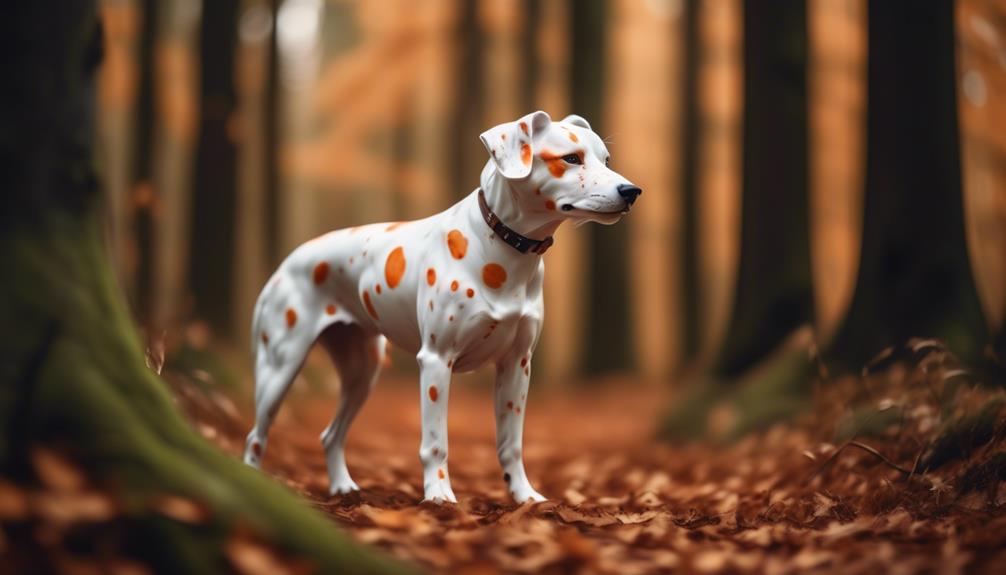
Are you tired of scrolling through countless dog breed pictures and articles, only to be bombarded with overly enthusiastic descriptions and endless lists of facts? Well, look no further!
We have just the article for you. In this discussion, we will dive into the world of Porcelaine dog breed, exploring their unique characteristics, fascinating history, and practical care needs.
But that’s not all. We will also uncover some surprising facts and shed light on important considerations when choosing this breed.
So, get ready to discover all there is to know about Porcelaine dogs and why they might just be the perfect addition to your family.
Key Takeaways
- The Porcelaine breed originated in France and is medium-sized, with a white coat and distinct orange markings.
- Porcelaines are friendly, sociable, and intelligent dogs with a good-natured disposition and tracking abilities.
- They require at least an hour of energetic exercise daily and mental stimulation through games and toys.
- Porcelaines are generally adaptable to apartment living, but their high energy levels and potential for barking or howling should be considered.
Origin and History
The Porcelaine dog breed originated in France and has a rich history that spans several centuries. These medium-sized dogs are known for their distinct orange markings on a pure white coat. They’ve a friendly and sociable temperament, making them great companions.
However, they’re also known for their tracking abilities and have a strong prey drive. Porcelaines require at least an hour of energetic exercise daily and mental stimulation through interactive toys.
When it comes to living in an apartment, Porcelaines adapt well as long as their exercise needs are met. It’s important to consider their high energy levels and potential for wandering off.
See another Dog breed profile.
Portuguese Podengo Pequeno Breed
Physical Characteristics
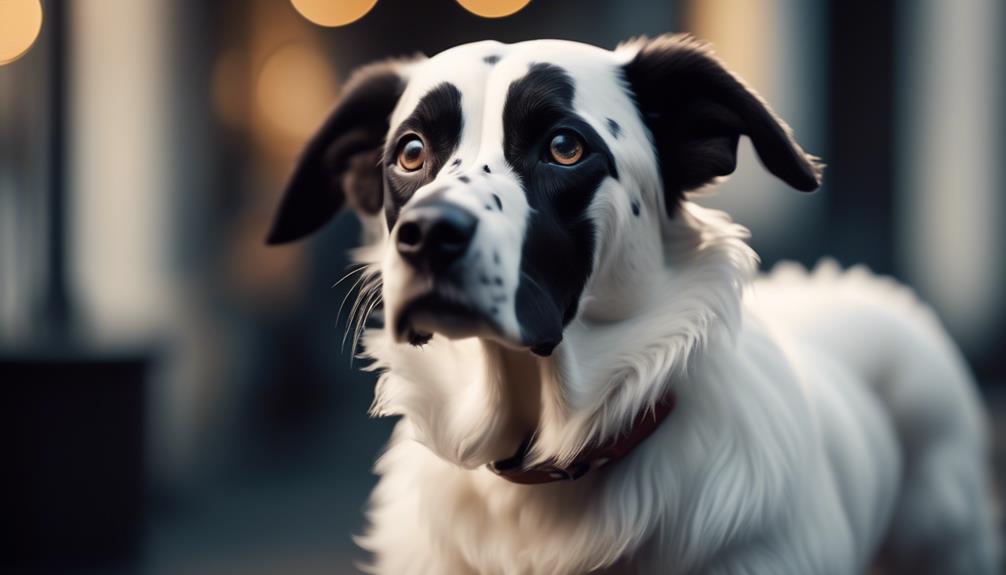
As we move on to discussing the physical characteristics of the Porcelaine dog breed, let’s take a closer look at their distinctive features and unique appearance. Porcelaines are medium-sized dogs, typically standing 21-24 inches at the shoulder. They have a short, dense coat that is pure white in color with distinct orange markings on the ears and body. This striking color combination adds to their overall allure. With their muscular build and elegant posture, Porcelaines exude a sense of strength and grace. They have a noble head shape with a slightly domed skull, and their eyes are large and expressive. The breed also boasts long, pendulous ears that hang close to their cheeks. All these physical traits contribute to the Porcelaine’s regal and captivating presence.
| Physical Characteristics | |
|---|---|
| Size | Medium-sized |
| Coat | Short, dense |
| Color | White with orange markings |
| Body | Muscular |
| Head | Noble, slightly domed skull |
| Eyes | Large and expressive |
| Ears | Long, pendulous, hang close to cheeks |
Temperament and Personality
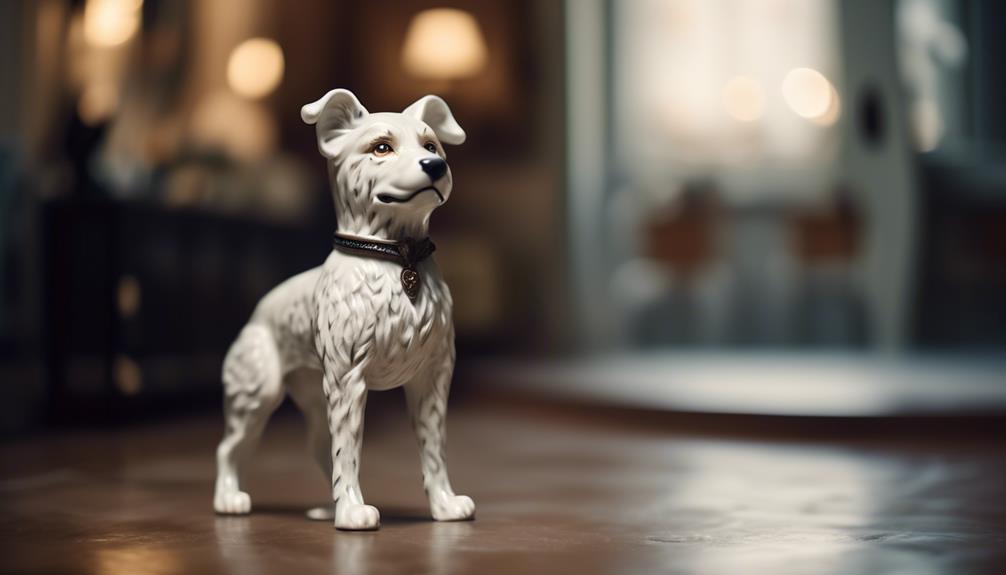
With their friendly and intelligent nature, Porcelaine dogs are known for their good-natured disposition and exceptional tracking abilities. They’re sociable and enjoy the company of their families. Porcelaines are affectionate and loyal, making them great companions for families and individuals alike. They’re known for their unconditional love and always strive to please their owners.
These dogs have a strong prey drive and may pursue and attack wild animals while hunting, so it’s important to provide them with proper training and supervision. Porcelaines have a high energy level and require significant exercise and mental stimulation. Without enough exercise, they may engage in undesirable behaviors.
Some Porcelaines are highly playful and always ready for a game, so be prepared for their playful nature.
Health and Care
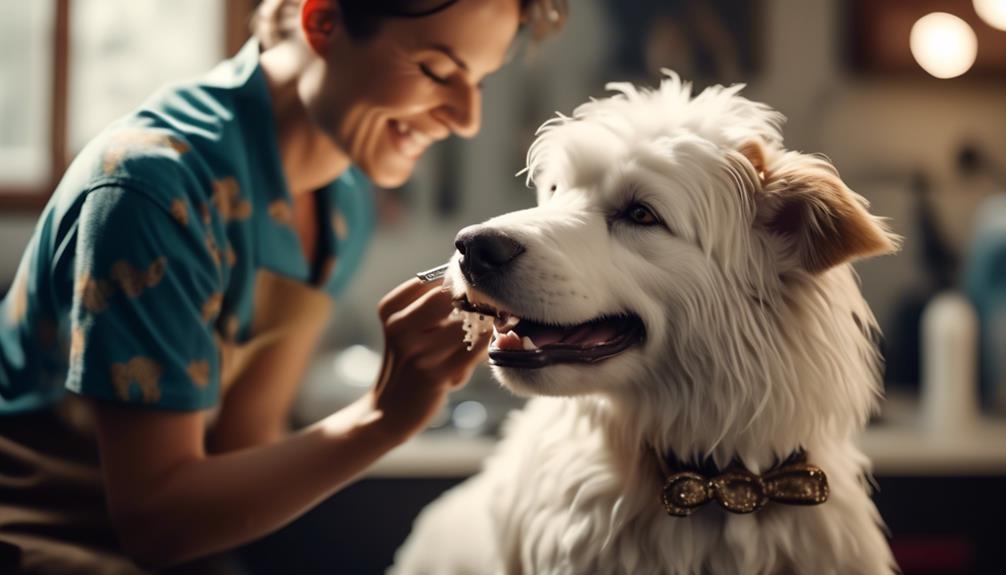
To ensure the well-being of your Porcelaine dog, it’s important to prioritize their health and care needs.
Porcelaines are generally a healthy breed, but they can be prone to certain health conditions. Regular veterinary check-ups are crucial to catch any potential issues early on. Keep an eye out for signs of hip dysplasia, bloat, and ear infections, as these can affect your dog’s comfort and overall quality of life.
In terms of care, Porcelaines have a short, dense coat that requires minimal grooming. Regular brushing once a week should suffice, although they do shed moderately.
Additionally, provide your Porcelaine with a balanced diet that suits their energy levels and feed them twice a day to prevent weight gain.
Exercise and Activity Needs

Regular exercise and activity are essential for keeping your Porcelaine dog healthy and happy. Here are four important things to consider when it comes to meeting your Porcelaine’s exercise needs:
- Daily exercise requirement: Your Porcelaine requires at least an hour of energetic exercise every day. This breed has a high energy level and needs plenty of physical activity to stay mentally and physically stimulated.
- Mental stimulation: In addition to physical exercise, it’s important to provide your Porcelaine with mental stimulation. Engage them in interactive games, such as ball games, and provide them with puzzle toys to keep their minds sharp.
- Consistency and routine: Establish a consistent exercise routine for your Porcelaine. Regular exercise at the same time each day will help them anticipate and look forward to their activity, keeping them happy and well-behaved.
- Outdoor exploration: Porcelaines have a strong wanderlust potential, so it’s crucial to ensure they’re always supervised during outdoor activities. Fenced areas or leashed walks are recommended to prevent them from wandering off and potentially getting lost.
Feeding and Nutrition
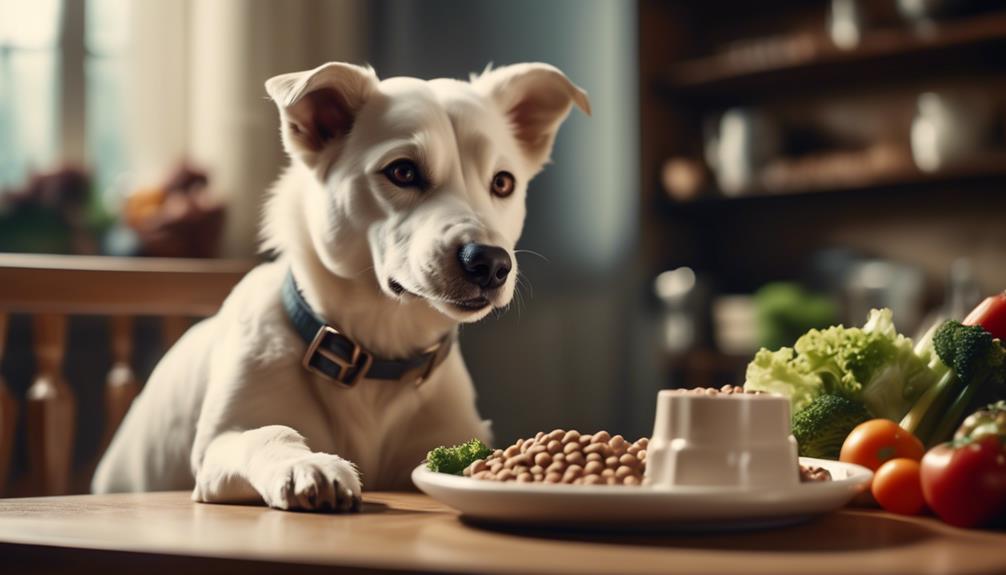
When it comes to meeting your Porcelaine dog’s nutritional needs, it is important to provide them with a balanced diet that supports their high energy levels and overall health. As a medium-sized breed with a lot of energy, the Porcelaine requires a diet that is specifically formulated for large breeds. It is recommended to measure their food and feed them twice a day to prevent weight gain. The table below provides a general guideline for feeding your Porcelaine dog:
| Age | Daily Feeding Amount | Type of Food |
|---|---|---|
| Puppy | 2-3 cups | High-quality puppy food |
| Adult | 3-4 cups | High-quality adult food |
| Senior | 2-3 cups | High-quality senior food |
In addition to providing the right amount of food, it is important to choose high-quality dog food that meets their nutritional needs. Look for a brand that includes real meat as the first ingredient and does not contain artificial additives or fillers. It is also important to provide fresh water at all times and consult with your veterinarian for any specific dietary recommendations or concerns.
Grooming and Coat Care
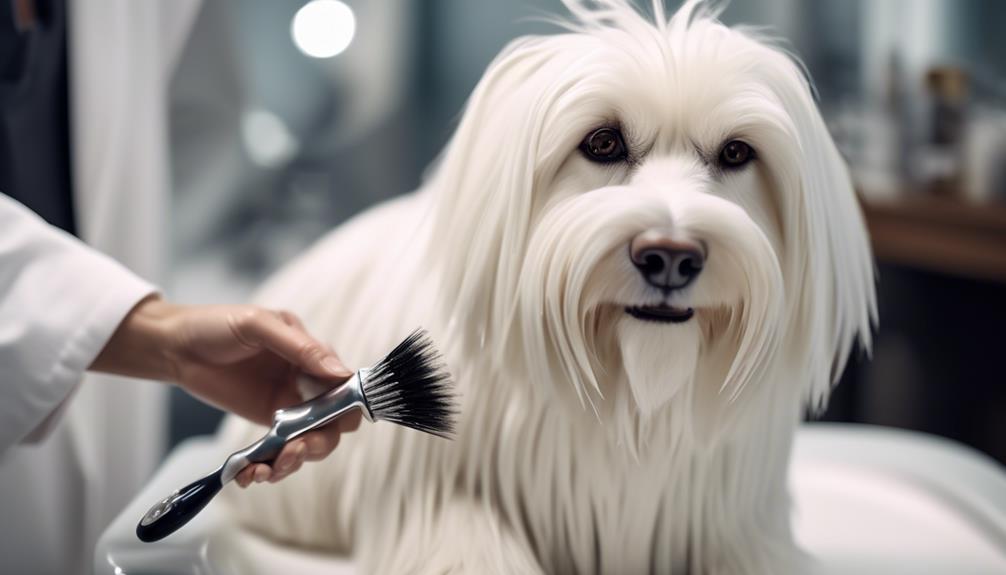
Grooming and maintaining the coat of a Porcelaine dog is an important aspect of their care. Here are four key points to consider when it comes to grooming and coat care for a Porcelaine:
- Coat Type: The Porcelaine has a short, dense coat that’s pure white with distinct orange markings on the ears and body. Their coat is relatively easy to care for, but it does shed moderately, so regular brushing once a week is recommended to keep their coat looking its best.
- Bathing: Porcelaines aren’t prone to strong odors or excessive dirt, so bathing them every few months or as needed should be sufficient. Use a gentle dog shampoo and ensure thorough rinsing to prevent any skin irritations.
- Ears and Teeth: Regularly check and clean your Porcelaine’s ears to prevent any infections. Additionally, brush their teeth regularly to maintain good oral hygiene and prevent dental issues.
- Nail Care: Trim your Porcelaine’s nails regularly to keep them at a comfortable length. Be cautious not to cut too short and cause any pain or bleeding.
Compatibility With Children and Other Pets
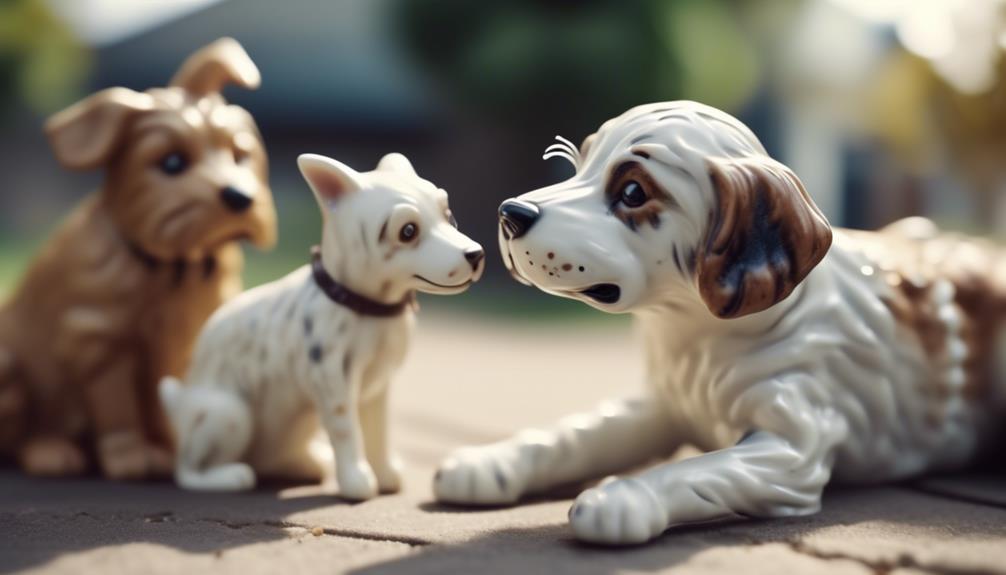
Porcelaine dogs are generally known for their compatibility with children and other pets. They have a friendly and sociable temperament, making them great companions for kids. With proper socialization, Porcelaines usually get along well with existing household dogs and can easily adapt to living with other pets. However, it is important to supervise interactions between Porcelaines and smaller pets such as cats or rabbits, as their strong predatory instincts may be triggered. To help you better understand the compatibility of Porcelaines with children and other pets, here is a table that outlines their typical behavior:
| Behavior with Children | Behavior with Other Pets |
|---|---|
| Friendly and gentle | Generally gets along well |
| Patient and tolerant | May chase smaller pets |
| Playful and energetic | Requires proper socialization |
Remember that early socialization and training are crucial in ensuring a harmonious relationship between Porcelaines and children or other pets.
Apartment Living and Adaptability
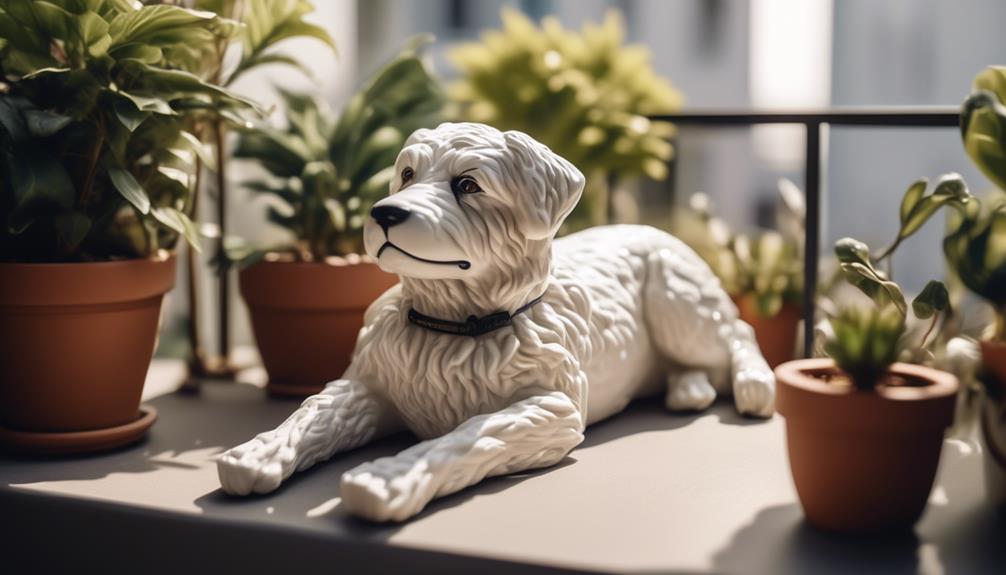
If you’re considering living in an apartment and are looking for an adaptable dog breed, the Porcelaine may be a suitable choice. Here are some factors to consider when it comes to apartment living and the Porcelaine breed:
- Adapts well to apartment living: The Porcelaine is known for its ability to adapt to smaller living spaces, making it a good fit for apartment dwellers.
- Size and energy levels: Porcelaines are medium-sized dogs with high energy levels. While they may require regular exercise, they can still thrive in an apartment as long as their exercise needs are met.
- Space requirements: Despite their energy levels, Porcelaines don’t have specific space requirements. As long as they’ve enough exercise and mental stimulation, they can be content in an apartment.
- Polite behavior: Porcelaines are generally well-mannered and have a good temperament, making them suitable for apartment living where good behavior is important.
Behavioral Considerations
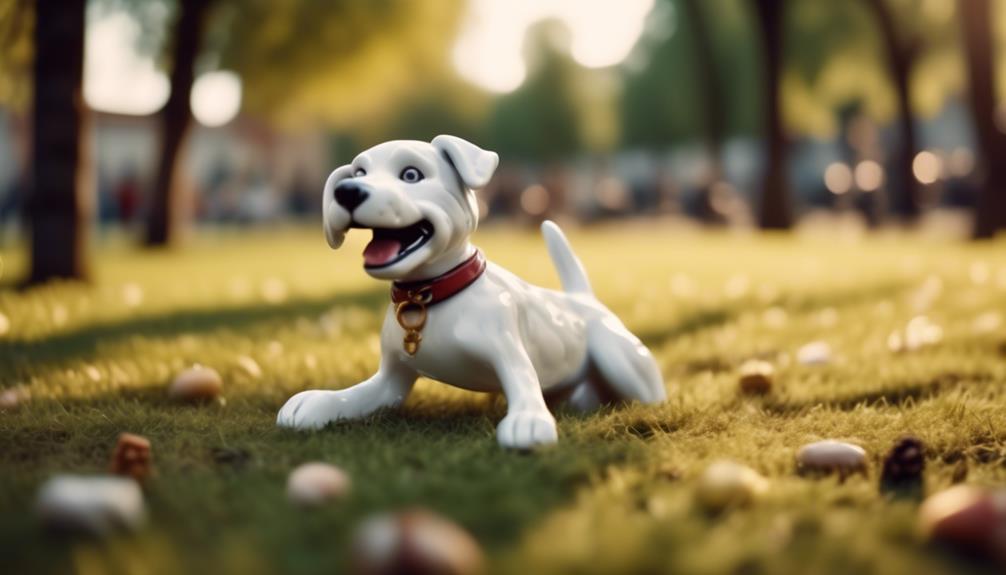
When considering the Porcelaine breed for apartment living, it’s important to take into account their behavioral considerations. Porcelaines have strong predatory instincts and may pursue and attack wild animals while hunting. Some Porcelaines have a tendency to bark or howl more often than others, so it’s essential to consider noise restrictions and neighbors when choosing this breed.
Additionally, Porcelaines are known to be free-spirited and may wander off if given the chance, so necessary precautions should be taken. These dogs have a high energy level and require significant exercise and mental stimulation. Without enough exercise, they may engage in undesirable behaviors.
Lastly, some Porcelaines are highly playful and always ready for a game, so consider your own willingness to engage in play and the presence of playmates.
Rescue and Breed Organizations

Finding a reputable dog breeder for the Porcelaine breed is crucial for ensuring the health and socialization of your new puppy. Here are some organizations and resources that can help you in your search:
- Porcelaine rescue groups: Although specific rescues for Porcelaine dogs may be limited, you can check local shelters or Hound dog rescues for similar breeds. These organizations often have a network of contacts and can assist you in finding a Porcelaine in need of a loving home.
- Porcelaine breed organizations: It’s important to find a reputable dog breeder who prioritizes health and socialization. Reputable breeders will screen their breeding stock for health problems and provide lifetime support for puppies. Backyard breeders may neglect these important aspects, so it’s essential to do thorough research before making a decision.
- Online communities: Joining online communities and forums dedicated to Porcelaine dogs can provide valuable insights and recommendations from experienced owners. These communities often have members who can point you in the right direction and share their own experiences with breeders or rescue organizations.
- Local dog shows and events: Attending local dog shows and events can give you the opportunity to meet and speak with Porcelaine breeders and enthusiasts. They can provide you with information about reputable breeders or connect you with individuals who may have Porcelaines available for adoption.
Frequently Asked Questions
Are Porcelaines Good Guard Dogs?
No, Porcelaines are not typically good guard dogs. They are known for their friendly and sociable nature, rather than being protective or aggressive. They are more suited as companions and family pets.
Do Porcelaines Require a Lot of Training?
Porcelaines require a moderate amount of training. They are intelligent and eager to please, but consistency and positive reinforcement are key. With proper training and socialization, they can be well-behaved and obedient companions.
Are Porcelaines Prone to Separation Anxiety?
Porcelaines can be prone to separation anxiety. It’s important to gradually leave them alone, provide mental stimulation, and consider crate training. Seek professional help if needed to address and manage separation anxiety effectively.
How Often Should Porcelaines Be Taken to the Vet for Check-Ups?
Porcelaines should be taken to the vet for regular check-ups at least once a year. These check-ups allow the vet to monitor their health, address any potential issues, and ensure they are up to date on vaccinations and preventive care.
Can Porcelaines Be Left Alone for Long Periods of Time?
Porcelaines should not be left alone for long periods of time. They are sociable dogs that thrive on human companionship. Leaving them alone for extended periods can lead to separation anxiety and undesirable behaviors.
Conclusion
In conclusion, the Porcelaine dog breed is a friendly and intelligent companion that adapts well to apartment living.
With their sociable nature and tracking abilities, they make great family pets.
However, it’s important to be aware of potential health conditions and the need for regular exercise and mental stimulation.
With proper care and attention, the Porcelaine can bring joy and companionship to any home.
Consider this wonderful breed when looking for a friendly and intelligent canine companion.




